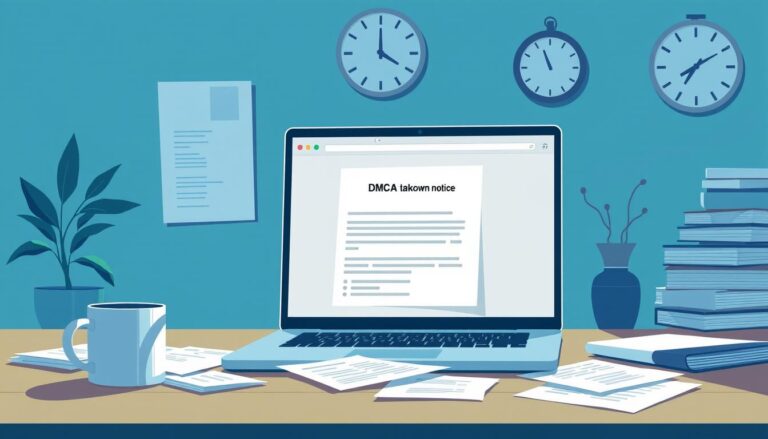5 Must-Have Legal Documents for Your Website
Did you know that online e-commerce accounts for approximately 9% of all retail trade in Australia? As the digital marketplace continues to expand, having the must-have legal documents for your website is no longer a choice but a necessity. These essential legal documents not only help ensure compliance with local regulations but also provide online legal protection against potential issues that can arise as your business grows. By integrating these documents into your business model, you safeguard both your operations and your customers, fostering a climate of trust and transparency.
Key Takeaways
- Legal documents are essential for all online businesses.
- A Privacy Policy is mandatory if you collect personal information.
- Terms of Sale clarify customer expectations in product-based businesses.
- Website Terms of Use safeguard intellectual property and outline user behavior.
- A Returns Policy is crucial for eCommerce to comply with consumer rights.
- Neglecting legal requirements can lead to costly disputes.
- Regularly review and update your legal documents to stay compliant.
Introduction to Legal Documents for Online Businesses
In the realm of online commerce, understanding the significance of legal documents for online businesses is critical. These documents outline the rights and responsibilities between your business and your customers, establishing a legal framework that protects both parties. This clarity not only fosters trust but helps navigate the legal obligations that come with operating in a digital space.
The importance of legal documentation cannot be overstated. For example, businesses in Australia may need to register for an Australian Business Number (ABN) for tax compliance. In addition, fair trading laws are in place to ensure customer protection and fair competition. These laws govern critical areas such as price display, product labeling, and warranty obligations. Understanding these regulations helps maintain legal integrity and can shield your business from potential disputes.
In the fast-paced digital environment, online businesses must comply with various laws, including privacy regulations that dictate how you handle customer information, especially in regard to direct marketing. Ensuring that your website contains a privacy policy, terms and conditions, and a returns policy is essential for establishing clear communication with your customers.
Additional considerations include obligations when employing staff, as apt compliance with wage regulations and work health and safety laws is mandatory. For businesses with fewer than 15 employees, guidelines provided by the Small Business Fair Dismissal Code must be adhered to, promoting fair practices in employment.
Protection of your intellectual property is another vital aspect that cannot be overlooked. Conducting thorough searches before applying for IP rights ensures that your assets are safeguarded. Additionally, compliance with the Franchising Code of Conduct and environmental protection laws further underscores the multifaceted nature of legal obligations in today’s business landscape.
To summarize, equipping your business with essential legal documents plays a pivotal role in ensuring compliance with various regulations, importantly defining the framework for interactions with visitors and customers. Utilizing services like iubenda can streamline this process by providing customizable and compliant legal documents tailored for your online business needs.
Importance of Legal Documents in E-Commerce
In the fast-paced world of e-commerce, understanding the importance of legal documents cannot be overstated. These documents serve as the backbone of your online business, offering essential protections and establishing clear guidelines for both you and your customers. Key documents, including the Terms of Use, Privacy Policy, Warranty Policy, and Returns and Refunds Policy, play a vital role in complying with various regulations and standards.
Given that industries like e-commerce frequently collect personal information, the need for a well-structured Privacy Policy is evident. This policy must clearly define how data is collected, secured, and utilized, serving not just as a compliance measure but also as a trust-building tool with customers. Moreover, Australian businesses with an annual turnover of $3 million must adhere to the Australian Privacy Act of 1988, necessitating a comprehensive privacy policy.
The significance of Warranty Policies can also not be neglected. They ensure products are fit for purpose, highlighting the importance of abiding by consumer rights laws. This documentation clarifies not only what the warranty covers but also its limitations, ultimately safeguarding your interests while informing the customer. Incorporating explicit details about returns and refunds ensures clarity in the buying process, detailing necessary timelines and conditions that align with e-commerce compliance standards.
To illustrate effective approaches, companies like Dell and Apple provide strong examples of well-structured legal documents. Their clarity and accessibility highlight essential clauses, making it easier for customers to understand their rights and obligations. This guidance promotes trust and minimizes the risk of disputes, emphasizing the importance of legal documents in driving successful e-commerce operations.
| Legal Document | Description | Compliance Requirement |
|---|---|---|
| Terms of Use | Governs the use of your website and services offered. | Mandatory for Australian online businesses. |
| Privacy Policy | Details data collection, usage, and storage practices. | Required by the Australian Privacy Act and GDPR for businesses engaging in e-commerce. |
| Warranty Policy | Explains product guarantees and consumer rights. | Aligns with local consumer laws to ensure product quality. |
| Returns and Refunds Policy | Describes the process and conditions for product returns. | Important for customer satisfaction and e-commerce compliance. |
Website Privacy Policy
A website privacy policy serves as a vital legal document that outlines how a business collects, utilizes, and safeguards personal information from users. This document plays a key role in ensuring data protection and building trust with your consumers.
What is a Privacy Policy?
A privacy policy details the processes for gathering, storing, and processing user data on your website. It informs users about their rights concerning their personal information, as well as the measures you implement for transparency in data collection. Users should easily find this document, often located in the footer of your website.
Key Elements of a Privacy Policy
When drafting your privacy policy, ensure it covers the following key elements of privacy policy:
- Type of personal information collected
- Reason for information collection
- Methods of data collection
- Details on user access for correcting data
- Complaint handling procedures
- Disclosure of data outside Australia
- Contact information for your business
Remember to include a clause regarding the use of cookies if applicable, as this is essential for compliance with data protection regulations.
GDPR Compliance Considerations
If your online business gathers personal information from individuals in the EU, ensure your privacy policy adheres to GDPR compliance requirements. This entails granting users rights related to their data and making sure your data handling processes are in line with international standards. Given that privacy laws continue to evolve, it’s essential to keep your policy updated and reflective of current practices. Issues surrounding personal information and compliance are crucial to navigate; you may wish to consult resources that discuss internet law for further guidance here.
Website Terms and Conditions
Website terms and conditions serve as pivotal legal documentation that outlines the rules and guidelines users must follow when engaging with your site. For Australian online businesses, particularly in e-commerce, comprehensive terms are crucial. They facilitate the management of user expectations and help mitigate risks such as misuse of content and services.
Overview of Terms and Conditions
These terms function as a user agreement that defines the responsibilities of both the business and its users. Various terminology exists worldwide, including “Terms of Use” in the US and “Terms of Service” for SaaS businesses. The primary focus remains on ensuring compliance with fundamental regulations, such as the Australian Consumer Law (ACL), which emphasizes the necessity of clear refund policies and consumer guarantees.
Protecting Your Business Interests
Incorporating robust website terms and conditions protects your business interests by setting clear parameters for user engagement. E-commerce sites face particular risks, requiring well-defined policies on shipping options, payment terms, and cancellation processes. Non-compliance with these legal requirements can result in penalties from the Australian Competition and Consumer Commission (ACCC).
Legally sound website terms must include:
- Statements regarding compliance with Australian Consumer Law
- Refund, repair, and warranty details
- Jurisdiction clauses for international transactions
The absence of appropriate terms exposes your business to liability and potential legal challenges. Establishing comprehensive terms eases operational complexity while safeguarding against disputes.

Website Disclaimer
A website disclaimer serves as a critical legal notice informing visitors about the limitations of your business’s liability regarding the information presented on your site. This document is essential for safeguarding against potential claims that may arise from incorrect information, misleading content, or other issues related to your website.
The Role of a Disclaimer
A well-crafted website disclaimer can significantly limit liability protection for website owners by addressing various legal concerns. Here are key aspects to consider:
- A website disclaimer clarifies that you are not responsible for the accuracy of information on your site.
- It helps mitigate risks related to visitor interpretations that may lead to lawsuits.
- Incorporating a disclaimer demonstrates to courts that users were informed of the risks when accessing your site.
- Displaying the disclaimer prominently can deter frivolous legal claims against your business.
Including an acknowledgment feature, such as a tick box for users to confirm they understand the disclaimer, increases awareness but may discourage some users from proceeding. Regular updates to your website to remove misleading content and ensure accuracy can further minimize liability risks. While a website disclaimer acts as a front-line defense, it does not provide comprehensive protection against all claims, especially under consumer protection legislation or negligence.
Adhering to specific regulations, such as the FTC’s requirement for transparency around affiliate commissions, is crucial for compliance. Other requirements, like those for legal practices or health information, necessitate particular disclaimers to maintain industry standards. Implementing a website disclaimer enhances overall liability protection and fosters a clearer understanding of the risks associated with using your website.
Copyright Notice
A copyright notice plays a significant role in safeguarding your original content and intellectual property rights. Protecting original content such as written material, images, videos, and other digital assets from unauthorized use is crucial for maintaining control over your creations. By making the copyright notice visible, you inform the public about your ownership and the rights associated with your work.
Why Copyright Matters for Your Website
Copyright serves as a legal framework that offers protection for various forms of creative expression. In countries that adhere to the Berne Convention, there is recognition of legal principles that prevent others from using your content without permission. Protection is automatic in several jurisdictions, including the US, UK, EU, and Australia, meaning that as soon as you create your work, copyright applies. This is essential for website owners who rely on their original content for brand identity and revenue generation.
How to Implement a Copyright Notice
Implementing a copyright notice effectively communicates your ownership and rights concerning your creations. Follow these steps to establish a clear copyright notice:
- Include the © symbol on all pages featuring your original content.
- Add the year of publication following the © symbol, indicating when the content was created.
- State the name of the copyright owner, whether it’s an individual or a company.
For example, a copyright notice could look like this: © 2023 Your Name. Utilizing such a notice does not only reinforce your intellectual property rights but also acts as a deterrent against potential infringements.
| Jurisdiction | Copyright Duration |
|---|---|
| US | Life of the author + 70 years |
| UK | Life of the author + 70 years |
| EU | Life of the author + 70 years |
| Australia | Life of the author + 70 years |
| Canada | Life of the author + 70 years |
Returns Policy for E-Commerce Websites
In the realm of e-commerce, understanding returns policies is vital to maintaining customer satisfaction and fostering trust. A well-defined returns policy outlines the procedures customers should follow if they wish to return products. By transparently communicating the terms and conditions surrounding returns, you can manage customer expectations effectively while enhancing their shopping experience.
Understanding Returns Policies
The significance of creating a returns policy cannot be overstated. Statistics indicate that online return rates can be as high as 30%, particularly in sectors such as clothing and shoes, which see return rates of 30 to 40%. Customers increasingly expect stores to accept returns within a timeframe of 15 to 30 days, with some policies extending up to 90 days. Notably, 62% of consumers anticipate online stores to have a return option within that 30-day window. This expectation highlights the need for businesses to establish customer-friendly policies that accommodate these preferences.
How to Create a Clear Returns Policy
Creating a returns policy involves a strategic approach that caters to both your business needs and customer expectations. Consider the following elements when drafting your returns policy:
- Grounds for Returns: Specify the conditions under which returns are accepted, such as defective products or incorrect items sent.
- Timeframe: Clearly state the window available for returns, typically recommended to be between 15 to 30 days.
- Reimbursement Methods: Outline how customers will receive refunds, whether through credit card reimbursement or store credit.
- Simplified Process: Make sure that the returns process is straightforward, as a smooth experience can encourage repeat business.
To further emphasize the importance of an effective returns policy, consider that over 84% of online buyers are likely to stop shopping with a retailer after a negative returns experience. The stakes rise even higher with Gen Z shoppers, where 34% express distrust toward many online stores. A well-crafted, customer-focused returns policy can significantly mitigate these concerns, thereby enhancing overall customer satisfaction.
| Product Category | Return Rate |
|---|---|
| Clothing and Shoes | 30-40% |
| Food | 7% |
| Furniture | 5% |
| Home Electronics | 10% |
| Average Returns Rate | 15-30% |
Must Have Legal Documents for Your Website
For your website to comply with e-commerce regulations, a variety of must-have legal documents are essential. Beyond the commonly recognized Privacy Policy, Terms and Conditions, and Disclaimer, you should also consider including key documents like a Refund Policy, Shipping Policy, and User Agreements. Each of these plays a vital role in establishing clear expectations and protecting your business.
The Privacy Policy is necessary for adherence to regulations such as the General Data Protection Regulation (GDPR) and the California Consumer Privacy Act (CCPA). Both laws mandate that you disclose how you collect and use personal data, including information obtained through cookies and online transactions. Failing to implement these documents could result in fines ranging from thousands to millions of dollars.

Terms and Conditions serve as the backbone of your website’s legal framework. They clarify the rules and guidelines that users must follow, protecting you from technical issues and potential liability claims. By including clear guidelines on unacceptable use, including hacking or harassment, you foster a safer online environment.
Your Refund and Shipping Policies should also be transparent. Clearly detailing these aspects builds trust with your audience and enhances user experience, which is crucial for e-commerce compliance. Similarly, User Agreements define the relationship between you and your users, outlining their rights and responsibilities.
| Legal Document | Purpose | Compliance Implications |
|---|---|---|
| Privacy Policy | Details data collection and usage | Mandatory under GDPR and CCPA |
| Terms and Conditions | Sets rules for site usage | Protects against liability issues |
| Disclaimer | Limits liability for website content | Defines scope of information published |
| Refund Policy | Clarifies return conditions | Enhances customer trust |
| Shipping Policy | Informs users about shipping rates and times | Aids in customer satisfaction and compliance |
| User Agreement | Outlines rights and responsibilities of users | Defines user interactions and protections |
Utilizing legal document template websites can further ensure that your e-commerce operations remain compliant. Not only do these documents help manage risk, but they also facilitate a professional image for your business.
User Agreement
A user agreement serves as a foundational document that defines acceptable and unacceptable behaviors for individuals engaging with your website and services. This agreement outlines the terms under which users can access and utilize your offerings, creating a clear reference point for user expectations and responsibilities. The importance of user agreements extends beyond mere documentation; they help establish order and clarity in user interactions.
Defining User Agreements
User agreements, often referred to as terms of service, terms and conditions, or acceptable use policies, provide a structured format to manage user behavior effectively. They incorporate essential elements such as:
- Rules regarding user-generated content
- Restrictions against abusive or harmful activities
- Payment and billing details
- Account termination procedures
Why User Agreements Matter
The significance of user agreements becomes apparent when considering the legal obligations they create for both your organization and your users. By clearly outlining user rules and responsibilities, you minimize potential misunderstandings that may lead to legal disputes. These agreements protect your company by:
- Limiting liability from errors or harmful content
- Establishing the governing laws for any disputes
- Clarifying user rights and expectations
- Providing disclaimers about the use of third-party links
While not legally required in Australia, the presence of a user agreement is strongly recommended for all websites. It serves not only as a safeguard against legal issues but also enhances professionalism, earning trust from your user base. By using a structured agreement, you ensure that both you and your users are aware of and agree upon the rules of engagement, bolstering responsible usage of your services.
Intellectual Property Rights
Establishing strong intellectual property rights is critical for your brand’s visibility and protection in today’s competitive market. Your website acts not merely as a digital brochure but serves multiple functions that introduce new legal complexities. You should carefully consider these aspects before diving into design, as overlooking intellectual property rights can have serious repercussions.
Among the most essential elements of legal protection are copyrights, trademarks, and design rights. Copyright automatically protects original content the moment it is created in a fixed form. This means you need to safeguard text, images, and multimedia on your site by including proper copyright notices. For any content sourced from third parties, verifying licenses and consents ensures you respect existing intellectual property rights.
When it comes to trademarks, these can be renewed indefinitely, providing a long-term legal strategy for protection. The initial application cost is relatively low, starting at around $330, offering a ten-year coverage period that can greatly benefit your business. Understanding that if 50 or more iterations of a design are produced, it qualifies for industrial application can enhance your protective measures.
Consider the implications of sharing your designs on social media before securing legal rights, as this may jeopardize your ability to enforce those rights later. Formulating a strategy that combines various protections can be the most effective way for you to maintain your competitive edge. Always consult the Australian Copyright Council’s factsheets for in-depth understanding regarding Designs and Copyright.
| Type of Protection | Description | Duration | Initial Cost (AUD) |
|---|---|---|---|
| Copyright | Protects original works in fixed form | Life of the author + 70 years | Free and automatic |
| Trademark | Identifies goods/services and distinguishes them | 10 years (renewable indefinitely) | Starting at $330 |
| Design Rights | Protects visual appearance of products | Up to 10 years with registration | Varies based on application |
Cybersecurity Guidelines
In today’s digital landscape, your online business is constantly exposed to various cybersecurity threats. Implementing effective cybersecurity guidelines is essential for protecting sensitive user data and maintaining customer trust. Establishing robust practices not only minimizes risks but also ensures compliance with legal standards.
Best Practices for Cybersecurity
To safeguard your online business, consider following these best practices:
- Conduct Regular Security Audits: Identify vulnerabilities and assess potential risks to your systems and data.
- Utilize Data Encryption: Ensure the information exchanged between your server and users is secure and cannot be intercepted.
- Implement Strong User Authentication: Use multifactor authentication methods to protect access to sensitive areas of your site.
- Establish Password Guidelines: Create policies for generating strong passwords, requiring regular updates, and using unique credentials for different accounts.
- Educate Employees: Train your team on best practices for recognizing and responding to security incidents.
- Develop an Incident Response Plan: Prepare a strategy for addressing cybersecurity incidents, including roles and responsibilities during an event.
Furthermore, maintaining your cybersecurity policy is crucial. Regular reviews and updates ensure that your strategies remain effective against evolving threats. By following these cybersecurity guidelines, you take essential steps in protecting your online business and the valuable data of your customers. Adhering to these practices not only helps in mitigating risks but also demonstrates a commitment to privacy and security within your business operations.
| Cybersecurity Practice | Description |
|---|---|
| Security Audits | Regular assessments to identify vulnerabilities. |
| Data Encryption | Protect data integrity during transmission. |
| User Authentication | Enhanced access control through multifactor systems. |
| Password Guidelines | Strong password creation and management policies. |
| Employee Education | Training staff on preventing and responding to breaches. |
| Incident Response Plan | A defined strategy for responding to threats and breaches. |
Review and Update Your Legal Documents
Maintaining compliance with current laws and regulations is essential for any business. As your company evolves or shifts its focus, legal documents require thorough evaluation and modification to mitigate risks. Regular reviews are important to ensure that your legal frameworks remain relevant and protective.
The Importance of Regular Reviews
Consistent evaluation of your legal documents helps identify areas that may need updates. As the legal landscape changes, businesses might face fines of up to $1.7 million for breaches of the Privacy Act 1988 (CTH). Updating your agreements, privacy policies, and terms of usage not only protects your interests but assures your clients that their rights are respected.
- Reviewing documents helps you adapt to new laws and regulations.
- Updated legal documents reflect your current business practices and policies.
- Regular reviews help prevent legal issues from arising suddenly.
It is advisable to consult legal experts while updating legal documents or when major changes occur within your business framework. For guidance on the laws surrounding augmented and virtual reality, you can consider relevant resources here. This knowledge becomes crucial in balancing technology with legal compliance.
Conclusion
Establishing essential legal documents for your online business is crucial for ensuring legal protection and fostering trust among your customers. When you take the time to create comprehensive documents such as a Privacy Policy, Terms and Conditions, and a Returns Policy, you not only shield your business from potential legal issues but also enhance transparency. This transparency allows your customers to engage with your brand with confidence, knowing their rights and responsibilities.
In Australia, specific legal requirements mandate that your Terms and Conditions include vital elements like payment options, cancellation policies, and procedures for resolving customer complaints. Furthermore, as remote work continues to grow, clarifying expectations through a work-from-home policy becomes paramount. By integrating these essential legal documents, you contribute significantly to your online business’s sustainability and credibility.
Overall, maintaining well-drafted, up-to-date legal documents is a strategic approach to safeguarding your interests. Regular reviews to ensure compliance with the latest laws and regulations will maximize the legal protection for your online business, further enhancing your brand’s reputable standing in the marketplace.






